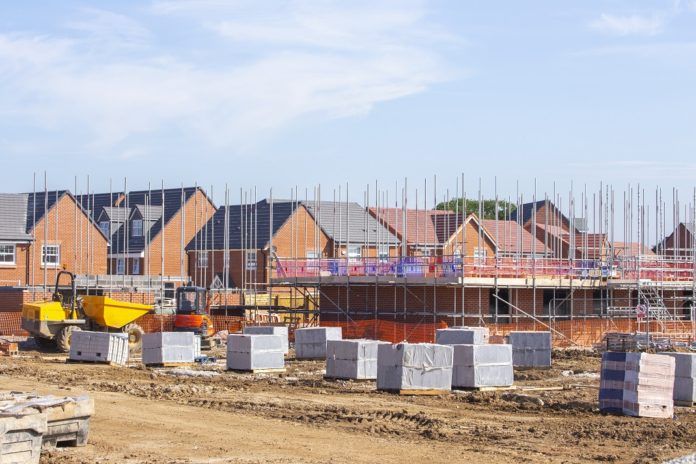Small house builders, who account for just 10% of all new homes built across the country, won’t be able to increase their market share unless a series of barriers are removed, says a new report, ‘Supporting SME Housebuilders: Challenges and Opportunities’.
The research, commissioned by the Federation of Master Builders (FMB) from the London School of Economics and Political Science (LSE), found that SME housebuilders are crucial for local expertise and flexibility in smaller or complex projects overlooked by larger developers, development of awkward sites (e.g., ex-industrial land, repurposed buildings) and bring with them strong community connections and a focus on quality.
Barriers
However, the report found that key barriers faced by SME housebuilders were the planning system, with delays, complexity, fragmented processes, and lack of local authority resources as well as a perceived bias towards larger developers.
The report also cited difficulty accessing suitable and affordable land in addition to insufficient access to affordable funding and high upfront costs, as well as shortages in skilled labour and rising material costs, with high burdens related to environmental and heritage preservation also mentioned.
Growth opportunities
When addressing opportunities for growth, the report suggested leveraging quality and customisation as unique strengths, as well as a potential for growth in green buildings, self-builds, and high-end properties.
It also suggested collaboration with local authorities on small-scale or brownfield developments aligned with regional goals and the promotion of innovation, sustainable practices, and local employment.
Recommendations
Considering the above, the report recommended streamlining processes and identifying more SME-suitable land and reducing regulatory complexity and planning fees.
It also recommended government-backed low-interest loans and more affordable funding options, as well as a greater focus on apprenticeships, training, and pathways for school leavers and partnerships between SMEs and larger developers to enhance competitiveness in addition to improved support for sustainable building practices and reduced development costs.
Commenting on the research, Brian Berry, chief executive of the FMB said: “The research recognises the value that small house builders can bring to the housing market in terms of greater consumer choice and quality. The UK has an unusual housing market structure compared to other developed nations, with a high reliance on a small number of volume house builders.
“The Housing Minister, Mathew Pennycook MP, says he wants to diversify the housing market and restore the number of smaller house builders to the market, but to achieve this aim many hurdles need to be overcome. One of the biggest barriers is the failure of local authorities to allocate sufficient small sites for development in their Local Plans – something that was notably overlooked in the government’s changes to the planning system announced last week.”
He continued: “The research reveals that the housing market cannot be relied upon to readjust to deliver the type of SME housing output seen in the 1980’s, when they accounted for 40% of all new homes. Government intervention is needed if we are to have a more diverse housing market. This includes the introduction of government backed low-interest loans and more affordable funding options. The research also highlights the current skills crisis calling for a greater focus on apprenticeships, training, and pathway for school leavers.”
Christine Whitehead, Emeritus Professor of Housing Economics at the LSE and one of the report’s authors, said: “SME house builders are equipped with unique skills and local expertise, with many wanting to expand their businesses. But to leverage their impact on the market they must overcome barriers, many of which disproportionately impact smaller house builders compared to larger developers.
“SMEs can deliver high quality products, and they reportedly want to play more of a role in greening homes and the self-build market, which all offer opportunities for growth. While smaller house builders clearly could play more of a role in the market by providing homes to match local need, boost the local economy and build upon unused land, to name a few, they are held back an environment that offers up too many barriers for growth.”




